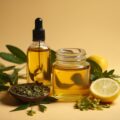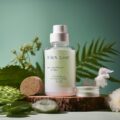Understanding Acne: Causes and Types
Acne is a common skin condition that affects millions of people worldwide. It occurs when hair follicles become clogged with oil and dead skin cells. The main types of acne include whiteheads, blackheads, papules, pustules, nodules, and cysts. Hormonal changes, diet, stress, and genetics can all contribute to the development of acne.
Topical Treatments: Over-the-Counter Solutions
Topical treatments are often the first line of defense against acne. These include:
- Benzoyl Peroxide: This powerful ingredient kills bacteria that cause acne and helps to reduce oil production.
- Salicylic Acid: Known for its ability to exfoliate the skin, salicylic acid helps to unclog pores and reduce inflammation.
- Retinoids: These vitamin A derivatives promote cell turnover and prevent clogged pores.
Prescription Treatments: When to See a Dermatologist
If over-the-counter treatments are not effective, it might be time to consult a dermatologist. Prescription treatments include:
- Topical Antibiotics: These help to kill bacteria and reduce inflammation.
- Oral Antibiotics: Used for more severe cases of acne, they work by reducing bacteria and inflammation from within.
- Hormonal Treatments: Birth control pills or anti-androgen medications can be effective for acne caused by hormonal imbalances.
- Isotretinoin: A powerful oral medication used for severe, cystic acne.
Natural Remedies: Gentle Alternatives
For those who prefer natural treatments, several options can help manage acne:
- Tea Tree Oil: Known for its antibacterial properties, tea tree oil can help reduce acne-causing bacteria.
- Aloe Vera: This soothing plant can reduce inflammation and promote healing.
- Honey: With its antibacterial and anti-inflammatory properties, honey can help to calm and heal acne-prone skin.
Daily Skincare Routine: Maintaining Clear Skin
Consistent skincare is crucial for managing acne. A basic routine should include:
- Cleansing: Use a gentle cleanser to remove dirt, oil, and makeup.
- Exfoliating: Incorporate a mild exfoliant to remove dead skin cells and prevent clogged pores.
- Moisturizing: Even acne-prone skin needs hydration; choose a non-comedogenic moisturizer.
- Sun Protection: Use a sunscreen with at least SPF 30 to protect your skin from UV damage.
FAQ
What causes acne?
Acne is caused by a combination of factors including clogged pores, bacteria, excess oil production, and inflammation.
How long does it take for acne treatments to work?
Most acne treatments take 4 to 8 weeks to show improvement, but some may take longer depending on the severity of the acne.
Can diet affect acne?
Yes, certain foods can trigger or worsen acne. High-glycemic foods, dairy products, and foods rich in sugar and fat are known to contribute to acne.
Are there any side effects to acne treatments?
Some acne treatments can cause side effects such as dryness, irritation, and redness. It is important to follow the instructions and consult a dermatologist if side effects occur.
Can stress cause acne?
Yes, stress can trigger acne by increasing the production of hormones that stimulate oil production in the skin.









